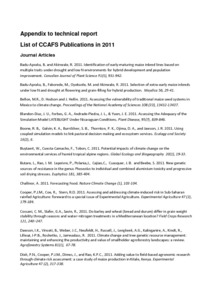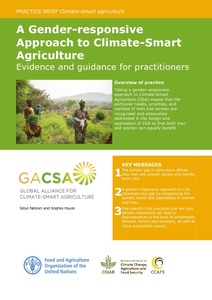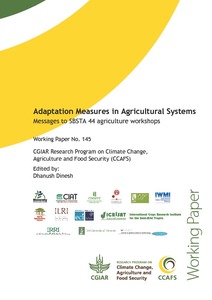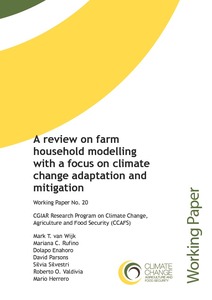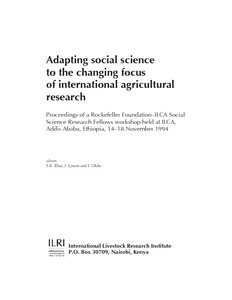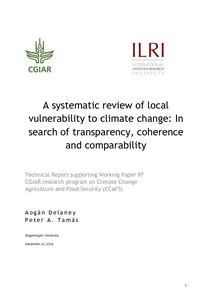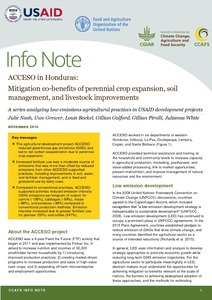2011 Annual Report to CGIAR Consortium: CGIAR Research Program on Climate Change, Agriculture and Food Security (CCAFS)
CCAFS got off to a strong start in 2011, releasing high?profile scientific results and helping achieve, in collaboration with multiple partners, a significant outcome in the global climate change negotiations. The full set of reports from Centers, Themes and Regions on which this CRP synthesis report is based are available here.

